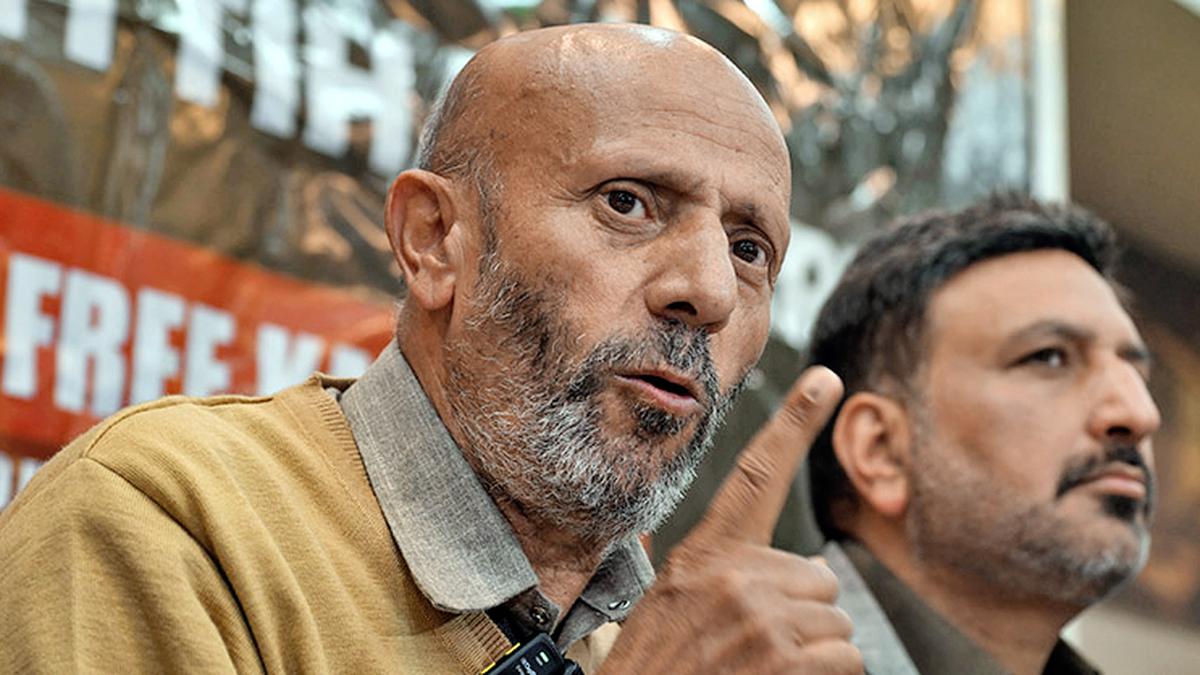 |
|
The Delhi High Court's recent decision to adjourn the bail plea of jailed MP Abdul Rashid Sheikh, also known as Engineer Rashid, highlights a complex legal battle involving jurisdictional disputes and the interpretation of Supreme Court precedents. Rashid, currently incarcerated in Tihar Jail since 2019 on charges related to terror funding under the Unlawful Activities (Prevention) Act, faces trial for allegedly financing separatist and terrorist groups in Jammu and Kashmir. His case underscores the intricate interplay between the legislative and judicial branches in handling cases involving elected officials, particularly those accused of serious crimes. The initial confusion regarding the appropriate forum to hear his bail application stemmed from his election to the Lok Sabha in 2024, a status which complicated the application of existing court procedures designed for MPs and MLAs.
The central issue revolves around a 2016 Supreme Court judgment that designated special courts solely for trying cases involving MPs and MLAs. The NIA court handling Rashid's case, not being a designated special court, initially declined to process his bail application, leaving him in a legal limbo. This prompted Rashid to appeal to the Delhi High Court, claiming lack of a proper forum to adjudicate his case. The High Court's registrar general further escalated the matter to the Supreme Court, seeking clarity on which court possessed the appropriate jurisdiction. The Supreme Court’s subsequent clarification, stating that the NIA court indeed has the authority to hear the bail plea, resolved the immediate jurisdictional impasse. However, the delay in resolving this procedural conflict underscores the need for clearer guidelines and potentially amendments in the existing legal framework to streamline the handling of such cases involving elected officials.
The complexities surrounding Rashid’s case extend beyond mere procedural matters. The allegations against him, involving the funding of separatist and terrorist activities, carry significant political and security implications. The case’s progression has been carefully observed, not only for its legal ramifications but also for its potential political impact. The timing of the bail application and the granting of interim custody parole to attend parliament sessions further emphasizes the delicate balance between ensuring fair legal processes and fulfilling an elected official's responsibilities. While the Supreme Court’s clarification provided a resolution to the immediate jurisdictional problem, the underlying issues surrounding the swift adjudication of bail applications for lawmakers accused of serious crimes remain a point of contention and require further examination. The Delhi High Court's decision to adjourn the matter until February 24th allows time for the necessary administrative orders to be documented and for the NIA court to process the bail plea efficiently.
The implications of this case extend far beyond the individual circumstances of Engineer Rashid. It raises critical questions about the efficiency of the judicial system in handling cases involving high-profile individuals. The delays, appeals, and jurisdictional disputes highlight potential vulnerabilities in the process, particularly concerning the balance between due process and the timely resolution of cases with national security implications. The potential for future similar cases underscores the urgency for reviewing and updating legal procedures to mitigate ambiguities and prevent the protracted legal battles that can result from inconsistencies in jurisdiction and the application of existing Supreme Court precedents. The need for clearer guidelines and a more streamlined process for handling such cases is essential to uphold both the principles of justice and the integrity of the judicial system.
Furthermore, the case serves as a reminder of the challenges inherent in balancing the rights of individuals accused of serious crimes with the needs of national security and the proper functioning of democratic institutions. The meticulous handling of such cases is crucial, not only for upholding the rule of law but also for preserving public trust in the fairness and efficiency of the legal system. This case serves as a valuable case study for examining potential reforms to improve the legal framework for handling similar situations in the future, ensuring more efficient and less ambiguous processes for resolving jurisdictional disputes while upholding the rights of all parties involved.
Source: Delhi HC lists Engineer Rashid's bail plea in NIA case on February 24 after SC clarification
